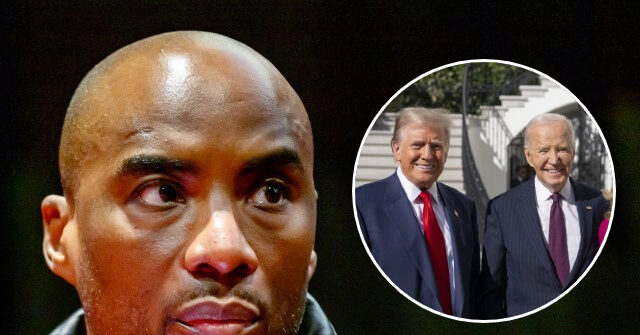Charlamagne Tha God, co-host of The Breakfast Club, recently voiced his perplexity regarding the apparent camaraderie displayed between President Joe Biden and President-elect Donald Trump during a White House meeting. Charlemagne’s confusion stemmed from the sharp contrast between the Democrats’ harsh pre-election rhetoric, which labeled Trump as a “fascist” and an “existential threat to democracy,” and the smiles and friendly gestures exchanged during their encounter. On his radio show, he articulated his skepticism, questioning how such a significant shift in tone could occur in such a short time frame and whether this translates into a genuine reconciliation or merely a political maneuver.
Biden’s demeanor during the photo-op with Trump was notably cordial, highlighting his commitment to ensuring a “smooth transition” of power. Trump reciprocated by expressing gratitude for the amicable atmosphere, acknowledging the complexities of politics but celebrating the day’s peaceful actions. The two leaders engaged in a nearly two-hour meeting, amplifying the contrast with the combative language typically used in their political discourse. Charlamagne Tha God referenced this discordance on his show, remarking on the juxtaposition between the previous incendiary remarks and the welcoming tone adopted by Biden upon Trump’s arrival.
Reflecting on this episode, Charlamagne characterized the meeting as bizarre, particularly in light of the language used by Democrats, which painted Trump as a dire threat just before the election. He openly questioned how political figures could transition from labeling someone as a grave danger to democracy to embracing them in a friendly context. This scrutiny suggested a deeper contemplation about the authenticity of the political rhetoric commonly employed during campaigns and whether such labels were to be taken at face value or merely utilized as tactical strategies to sway public opinion.
The radio host recalled similar sentiments he had expressed following Trump’s resounding election victory, where he pointed out the peculiar absence of condemnatory language from Democrats post-election. Instead of characterizations of Trump as a looming danger, discussions shifted to more neutral tones, raising questions about the sincerity of earlier claims. He contended that if the Democrats truly believed Trump to be an existential threat, their subsequent rhetoric and actions would reflect a higher degree of urgency and concern about the future of America, rather than a prolonged bout of political reconciliation.
Charlamagne’s inquiries illuminated the broader implications of political rhetoric and its impact on public perception and trust. If the Democrats’ characterization of Trump was merely strategic politicization rather than a deeply held belief, it potentially diminishes the gravity of their claims. His commentary evoked a discussion about the responsibility of politicians to maintain consistency and credibility in their messaging, particularly regarding matters as consequential as democracy and governance. This sentiment resonates especially with voters who crave straightforward dialogue rather than political posturing masked as earnestness.
In conclusion, the exchange between Biden and Trump not only perplexed Charlamagne Tha God but also stirred a larger conversation about the nature of political discourse in contemporary America. As these political leaders engage in seemingly contradictory actions and statements, questions arise over the authenticity of political rhetoric and its ramifications for public confidence. Ultimately, this event underlines the intricate dynamic of politics, where cordiality and hostility can coexist, leaving citizens and commentators alike to ponder the true motivations and beliefs guiding their leaders’ interactions.

